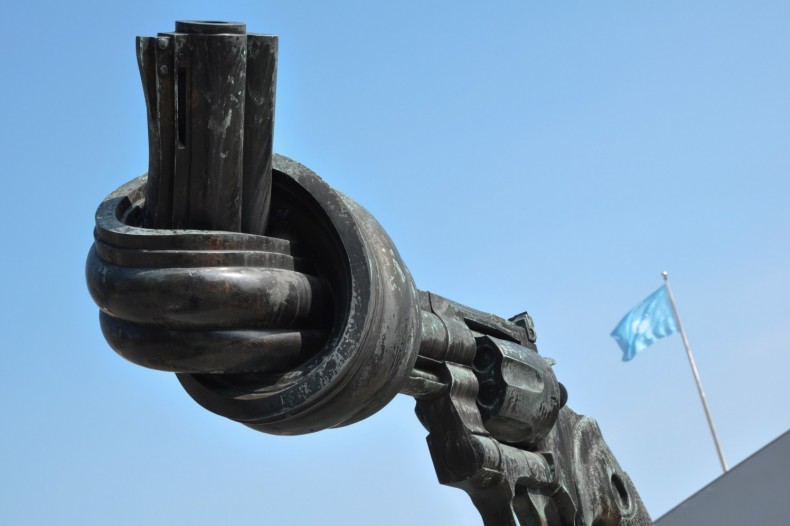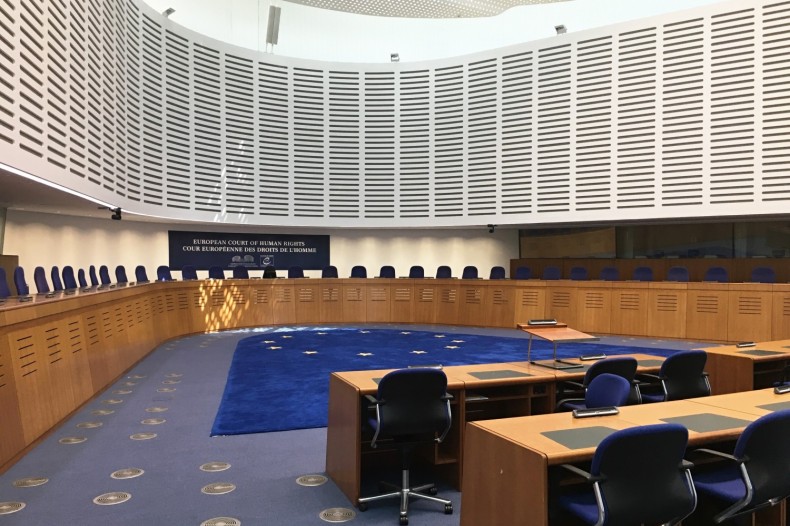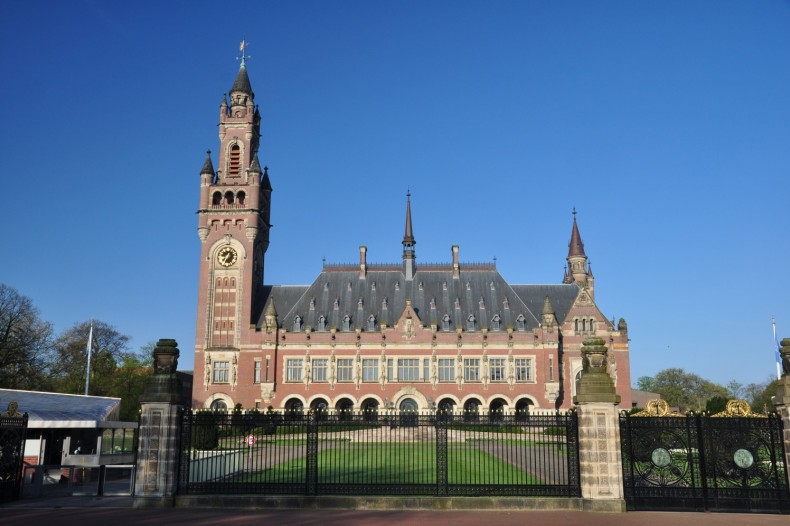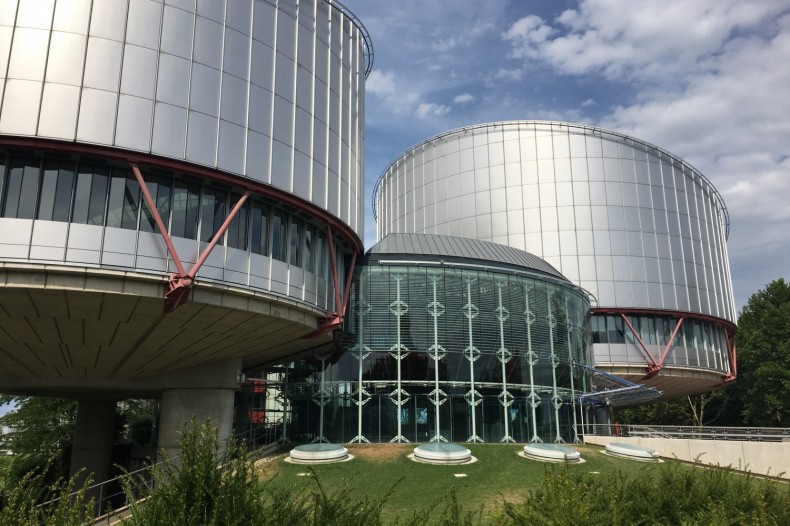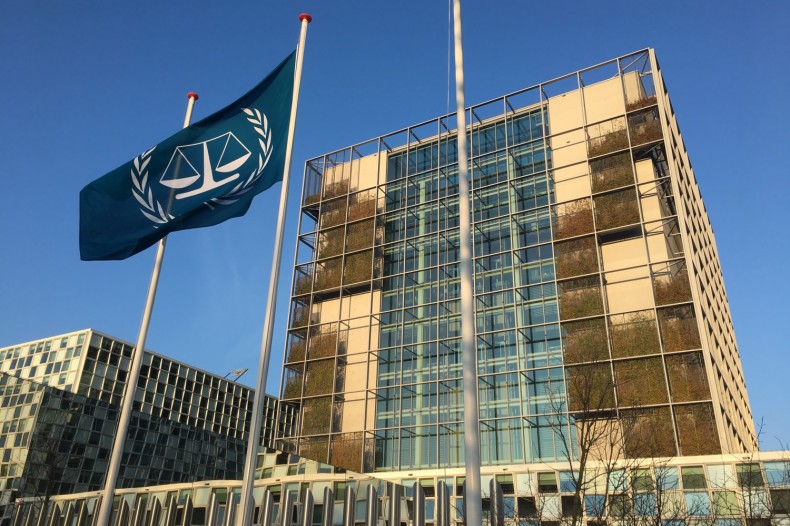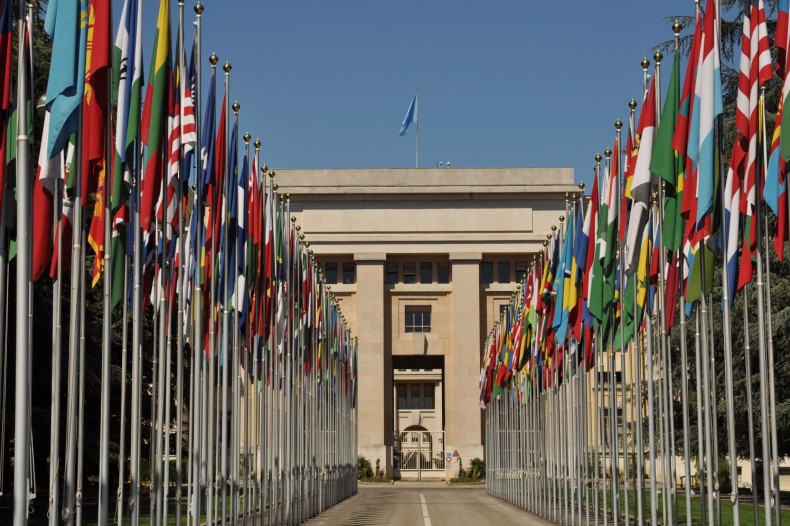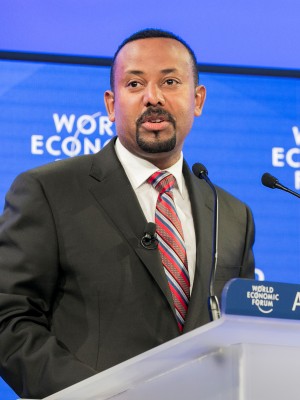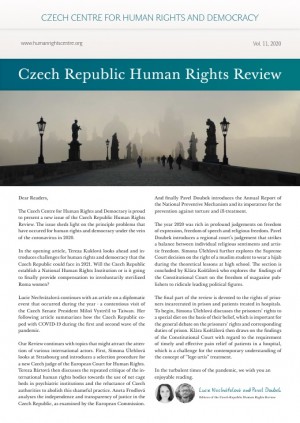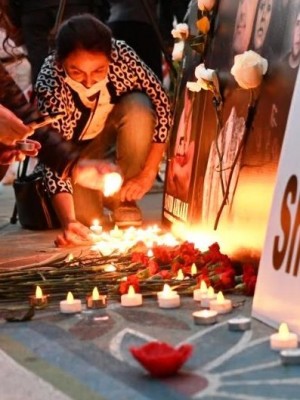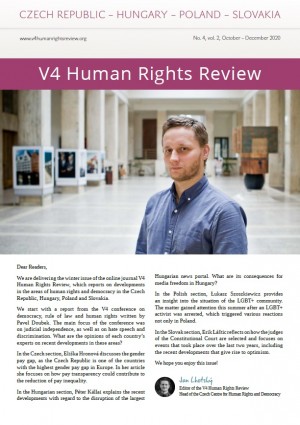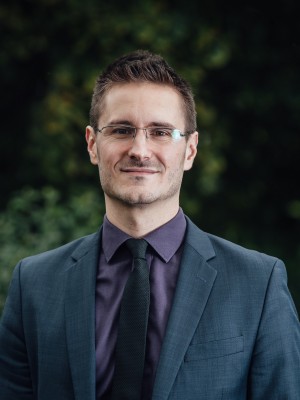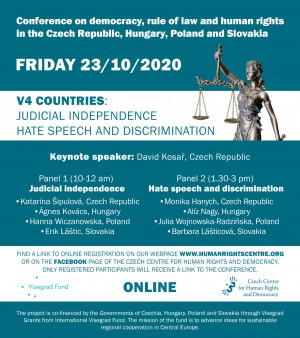Czech Centre for Human Rights and Democracy
The Centre is an independent academic institution monitoring human rights developments both domestically and worldwide, issuing a monthly Bulletin, as well as organizing conferences.
It has been more than half a year since hostilities broke out in the Tigray region of Ethiopia. The humanitarian situation in the region is worsening every day and there is an increasing number of reports of war crimes committed by both sides of the conflict. Despite its large-scale consequences, the conflict remains relatively unknown to the public.
You can download Czech Human Rights Review here.
The Czech Centre for Human Rights and Democracy is proud to present a new issue of the Czech Republic Human Rights Review. The issue sheds light on the principal problems that have occurred for human rights and democracy under the vein of the coronavirus in 2020.
Who deserves priority over a life-saving vaccine when everyone has a morally equal worth? The COVAX initiative is a path from vaccine nationalism to vaccine equity, but rich countries pay lip service to the initiative while hoarding doses. These same countries also refuse to support a waiver of intellectual property rights for COVID-19 vaccines thus denying their moral and legal obligations.
On 12 September 2020, the Iranian wrestler Navid Afkari was secretly executed. Afkari had been charged and convicted of stabbing police officers during anti-government protests. However, the evidence of his guilt is disputable. Afkari himself claimed that he had been tortured to confess, and his confession was the key evidence for his death sentence.
You can download the winter V4 Human Rights Review here.
We are delivering the winter issue of the online journal V4 Human Rights Review, which reports on developments in the areas of human rights and democracy in the Czech Republic, Hungary, Poland and Slovakia.
We start with a report from the V4 conference on democracy, rule of law and human rights written by Pavel Doubek. The main focus of the conference was on judicial independence, as well as on hate speech and discrimination. What are the opinions of each country’s experts on recent developments in these areas?
The Head of the Czech Centre for Human Rights and Democracy and editor of the V4 Human Rights Review began working as an Assistant Lawyer at the European Court of Human Rights in Strasbourg this September. In July, he was also appointed by the Czech Republic for five years as an alternate member of the management board of the EU Agency for Fundamental Rights (FRA) in Vienna. The member of the management board appointed by the Czech Republic is Veronika Bílková. Apart from the above mentioned activities, Jan Lhotský also engages in research. His latest policy paper addressing the current efforts to reform or review the UN human rights treaty body system (in Czech) can be read here.
A number of experts from the Visegrad countries (Czech Republic, Hungary, Poland and Slovakia) will discuss human rights and democracy. They will comment on the current situation in their respective V4 countries, with the main focus on judicial independence, as well as on hate speech and discrimination.
The conference will take place on Friday 23.10.2020 from 10.00-12.00 (keynote and panel 1) and from 13.30-15.00 (panel 2).
This event will take place online. Please register here: https://forms.gle/za3L3vytrkxonZ2i7. Only registered participants will receive a link to the conference.

